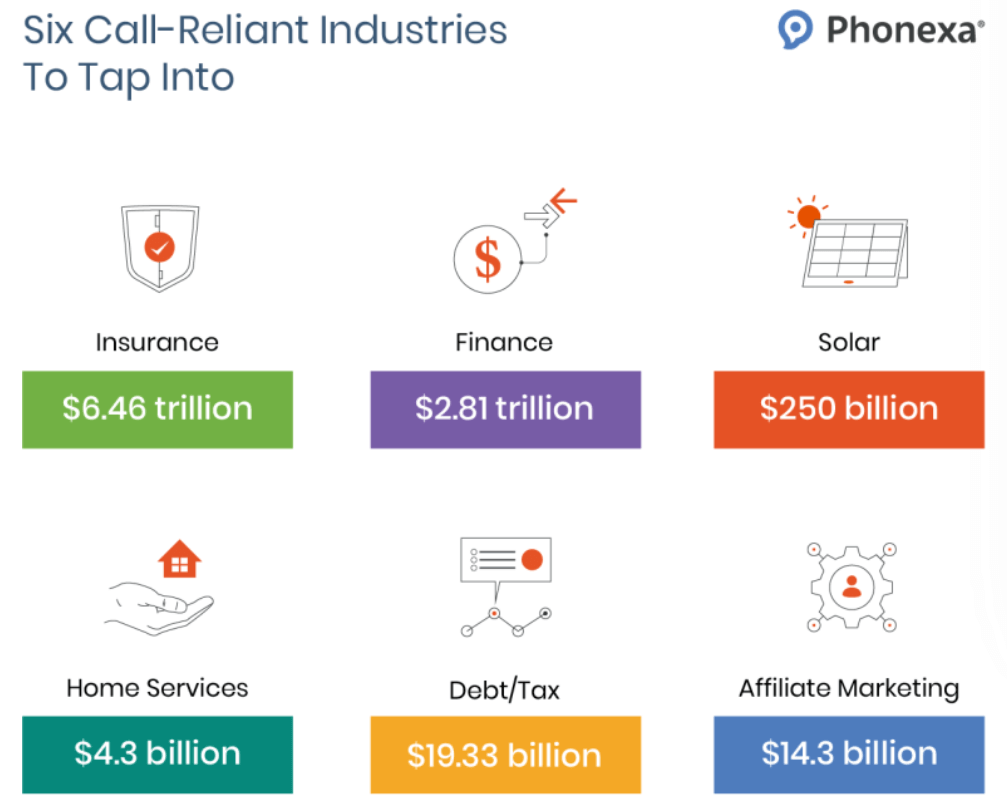In the ever-evolving landscape of digital marketing, pay-per-call (PPC) campaigns have emerged as a powerful strategy for businesses seeking to drive high-quality leads. This model is particularly effective in industries where customer interactions are critical, and a direct conversation can significantly influence purchasing decisions. This guide explores the industries currently thriving with pay-per-call marketing, highlighting strategies, benefits, and practical steps to maximize success.
The Importance of Pay-Per-Call Marketing

Pay-per-call marketing connects advertisers directly with potential customers via phone calls. Unlike traditional online leads, this model emphasizes quality over quantity, ensuring that businesses receive calls from genuinely interested prospects. For industries where personalized service is key, such as home services or legal, the ability to speak with a customer directly can lead to higher conversion rates.
Benefits of Pay-Per-Call Marketing
- High Intent Leads: Calls often come from customers ready to make a decision, leading to increased conversion rates.
- Immediate Engagement: Direct communication allows businesses to address customer queries instantly, fostering trust and rapport.
- Measurable Results: Campaigns can be tracked in real-time, allowing for quick adjustments to optimize performance.
- Cost-Effective: Pay-per-call models can be more economical than traditional advertising, as businesses only pay for completed calls.
Industries Thriving with Pay-Per-Call Marketing

Here’s a closer look at several industries that have successfully integrated pay-per-call campaigns into their marketing strategies:
1. Home Services
Overview: The home services industry encompasses plumbing, HVAC, landscaping, and electrical services, all of which require direct communication with customers.
Why It Works: Most homeowners prefer to speak directly with service providers when scheduling repairs or installations. Pay-per-call allows businesses to connect with homeowners who are actively seeking their services.
Example: A plumbing company leveraging pay-per-call marketing sees a spike in calls during peak seasons (like winter, when pipes are more prone to freezing). By using targeted ads, they can reach homeowners in need of immediate assistance.
2. Legal Services
Overview: Law firms specializing in personal injury, family law, and criminal defense benefit greatly from pay-per-call campaigns.
Why It Works: Prospective clients often seek immediate legal advice, making phone calls an essential part of their decision-making process. Direct communication helps build trust and allows lawyers to gauge the urgency of each case.
Example: A personal injury lawyer running a pay-per-call campaign can attract individuals searching for immediate representation after an accident, converting them into clients through direct consultations.
3. Healthcare Services
Overview: This includes medical practices, urgent care facilities, and telehealth services, all of which thrive on patient inquiries.
Why It Works: Patients often prefer speaking with a healthcare provider to discuss symptoms, schedule appointments, or inquire about services. Pay-per-call can efficiently connect patients with the right practitioners.
Example: An urgent care clinic using pay-per-call marketing might run ads targeting local residents seeking immediate medical attention, resulting in increased foot traffic and appointments.
4. Education and Training
Overview: Educational institutions and training programs often seek to enroll new students through effective lead generation strategies.
Why It Works: Prospective students may have specific questions about programs, costs, and enrollment processes, making direct communication invaluable.
Example: An online university utilizing pay-per-call marketing can connect potential students with admissions counselors, helping them make informed decisions about their education.
5. Travel and Hospitality
Overview: This sector includes travel agencies, hotels, and vacation rentals that benefit from direct customer interaction.
Why It Works: Travelers often seek personalized recommendations and immediate answers to their inquiries, making phone calls essential for booking arrangements.
Example: A travel agency running a pay-per-call campaign might attract clients looking for vacation packages, resulting in higher conversion rates through personalized consultations.
6. Automotive Services
Overview: This includes auto repair shops, dealerships, and insurance providers.
Why It Works: Customers frequently require urgent repairs or insurance quotes, making direct conversations critical for service providers to secure business.
Example: An auto repair shop leveraging pay-per-call marketing can quickly address customer concerns about vehicle issues, leading to increased appointments and repairs.
7. Home Improvement
Overview: Companies specializing in renovations, roofing, and construction benefit from pay-per-call strategies.
Why It Works: Homeowners often seek multiple quotes for large projects and prefer speaking to contractors to discuss specifics.
Example: A roofing company might run a campaign during storm season, targeting homeowners who may need roof repairs, leading to a spike in inquiries.
8. Financial Services
Overview: This includes mortgage brokers, insurance agents, and investment advisors.
Why It Works: Clients often seek immediate advice on financial decisions, and personal interaction can significantly impact their choices.
Example: A mortgage broker using pay-per-call marketing can connect with potential homebuyers looking for financing options, increasing lead quality and conversion rates.
Strategies for Successful Pay-Per-Call Campaigns
To maximize the effectiveness of pay-per-call marketing, consider the following strategies:
1. Targeted Advertising
- Use Specific Keywords: Focus on long-tail keywords that indicate a strong intent to call.
- Leverage Local SEO: Optimize your website and online listings for local searches to attract geographically relevant leads.
2. Utilize Multiple Channels
- Combine Online and Offline Marketing: Integrate PPC ads, social media campaigns, and traditional media (like radio) to reach potential customers across various platforms.
3. Track and Analyze Calls
- Implement Call Tracking: Use software to monitor the number of calls, duration, and outcomes. This data can help refine your marketing strategy.
- Analyze Customer Behavior: Identify peak call times and adjust your campaigns accordingly to capitalize on busy periods.
4. Optimize Call Handling
- Train Staff: Ensure your team is well-trained to handle incoming calls effectively and convert inquiries into sales.
- Implement Call Routing: Use systems to direct calls to the right department or individual, improving customer satisfaction.
5. A/B Testing
- Test Ad Variations: Experiment with different ad copies, call-to-action phrases, and landing pages to identify what resonates best with your audience.
6. Leverage Affiliate Networks
- Join Established Networks: Partnering with affiliate networks like RevJOLT can help you tap into a broader audience and gain access to expert resources in pay-per-call marketing.
How to Sign Up for RevJOLT Network
To begin your journey with pay-per-call marketing and maximize your outreach efforts, consider joining RevJOLT Network. Here’s a step-by-step guide to signing up:
Step 1: Visit the RevJOLT Website
- Navigate to the official RevJOLT Network website to access their offerings and information.
Step 2: Create an Account
Step 3: Provide Your Business Information
- Enter relevant information about your business, including your industry, target market, and goals for the pay-per-call campaigns.
Step 4: Set Up Payment Information
- Input your payment details to facilitate the pay-per-call model, ensuring smooth transactions for leads generated.
Step 5: Start Creating Campaigns
- Once your account is set up, begin crafting your pay-per-call campaigns, utilizing the network’s resources and support for guidance.
Step 6: Monitor Performance
- Utilize the analytics tools provided by RevJOLT to track your campaign’s performance, making adjustments as necessary to optimize results.
Conclusion
Pay-per-call marketing presents a unique opportunity for industries that rely heavily on direct customer interaction. By understanding the benefits and implementing effective strategies, businesses can leverage this model to drive high-quality leads and boost conversions. Whether you’re in home services, legal, healthcare, or another sector, the potential for growth through pay-per-call campaigns is significant.
By joining networks like RevJOLT, you can enhance your marketing efforts and connect with valuable resources to maximize your success in this dynamic landscape. Start today, and watch your business thrive!

